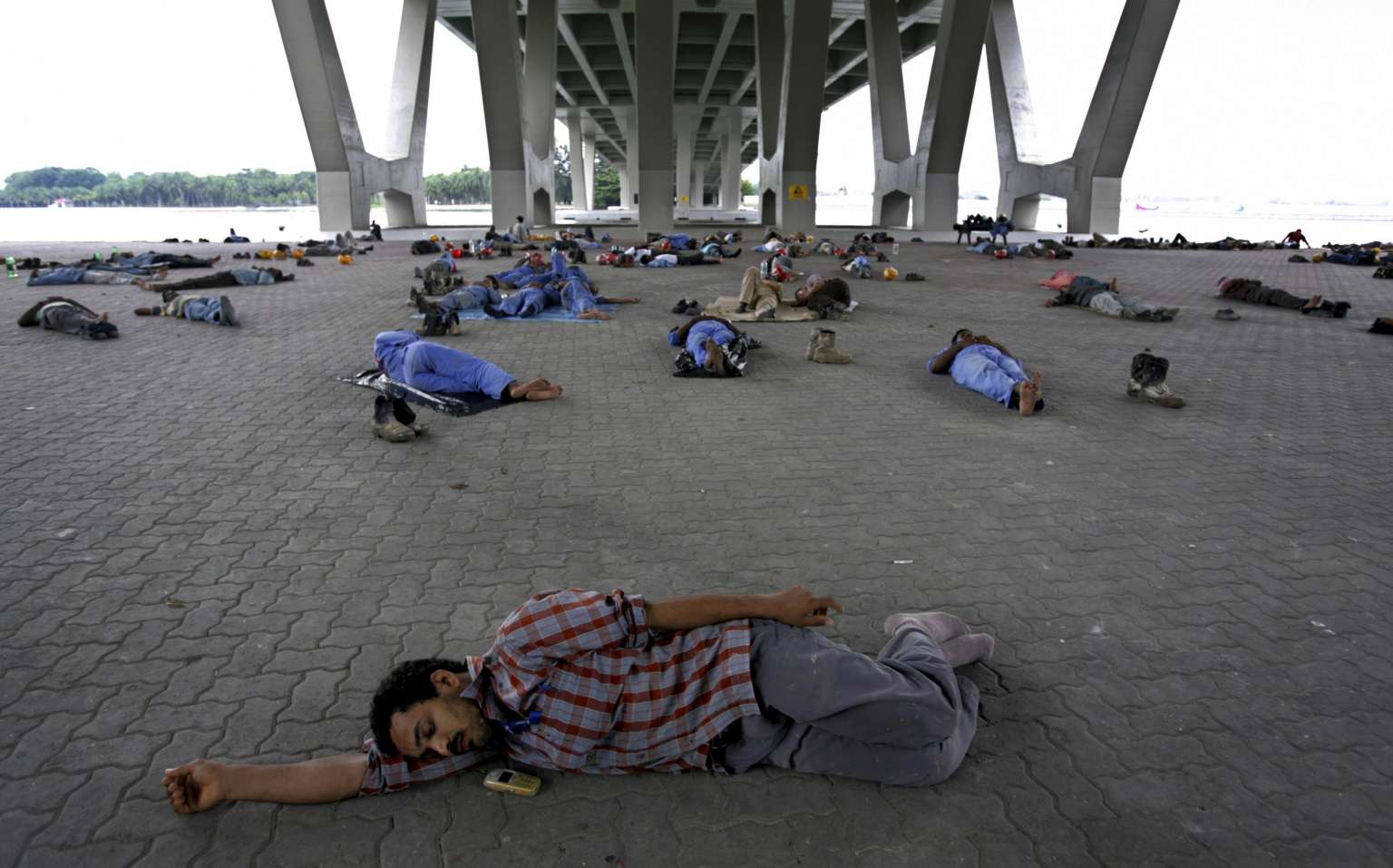Most migrant South Asian workers face mental health issues as they await claims settlement
Sign up now: Get ST's newsletters delivered to your inbox

Construction workers sleeping under an expressway bridge during their lunch break in Singapore.
PHOTO: REUTERS
Follow topic:
SINGAPORE - Most lower-skilled South Asian migrant workers,who are waiting for salary or injury compensation from employers, are likely to be suffering from mental health issues, such as distress, according to a survey released on Wednesday (Nov 4).
The survey of 605 workers, mostly from Bangladesh and India, was done by the Lien Centre for Social Innovation. It found that over 60 per cent of respondents who had outstanding claims were predicted to have serious mental illness, compared with 13 per cent of regular respondents wtihout claims.
Threats of repatriation by employers, outstanding agent fee debts and a lack of housing for workers who run away were the three main causes of their psychological distress. Close to half of the workers who had been threatened with being sent back to their home countries were likely to be suffering from serious mental illness.
Singapore Management University (SMU) Assistant Professor Nicholas Harrigan, who co-authored the study with former SMU student Koh Chiu Yee, said that the unequal bargaining power of workers turns simple claims into complicated issues.
Migrant worker NGO leaders said the survey - done over two weeks in 2013- validated their experience with migrant workers.
Transient Workers Count Too executive committee member Debbie Fordyce said the stress of dealing with injury claims or salary disputes, which usually means workers are taken off their work permit, can be a heavy burden to bear even by typically resilient workers.
"When men first come to us, many of them break into tears; they don't know how to deal with this," she said.
Lawyer Mohammed Ali, who specialises in work injury claims at HOH Law Corporation, said that, often, the root problem begins in the workers' home countries, where they take on debt.
"When they come they are already under pressure, they're already distressed," he said. "They think: 'I come here I have to work, I have to stay in Singapore'. "

